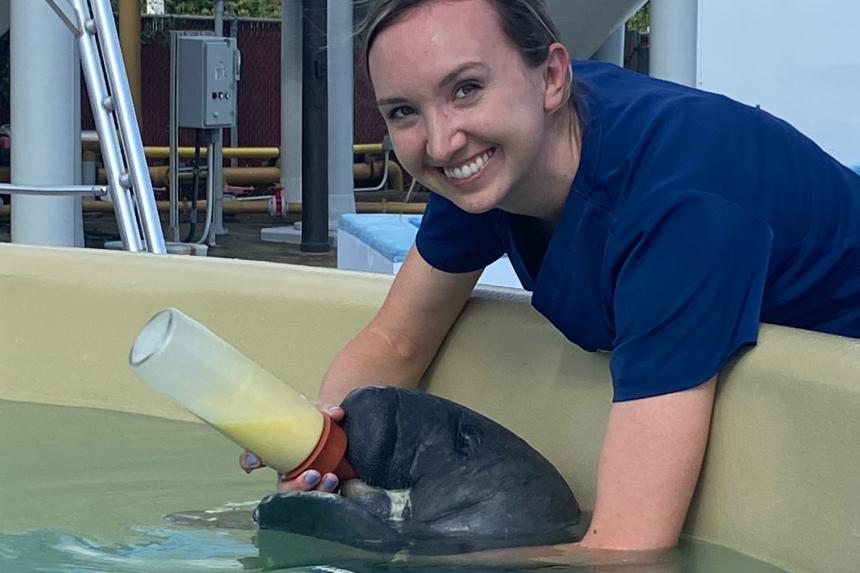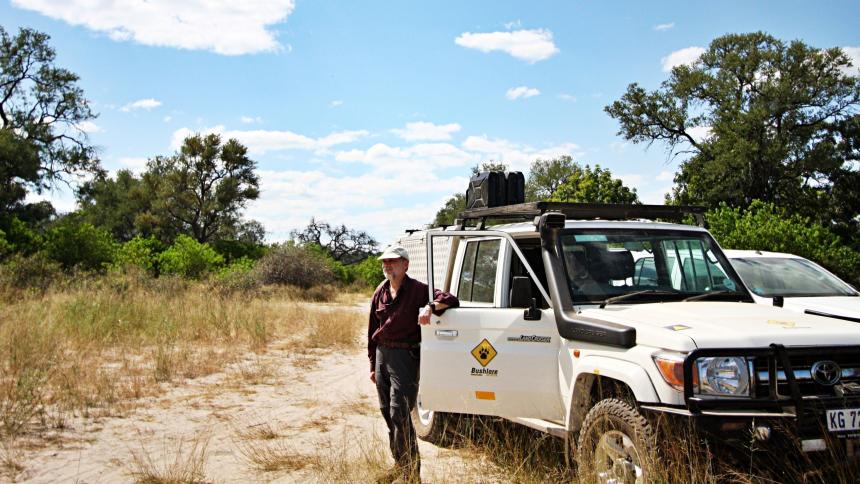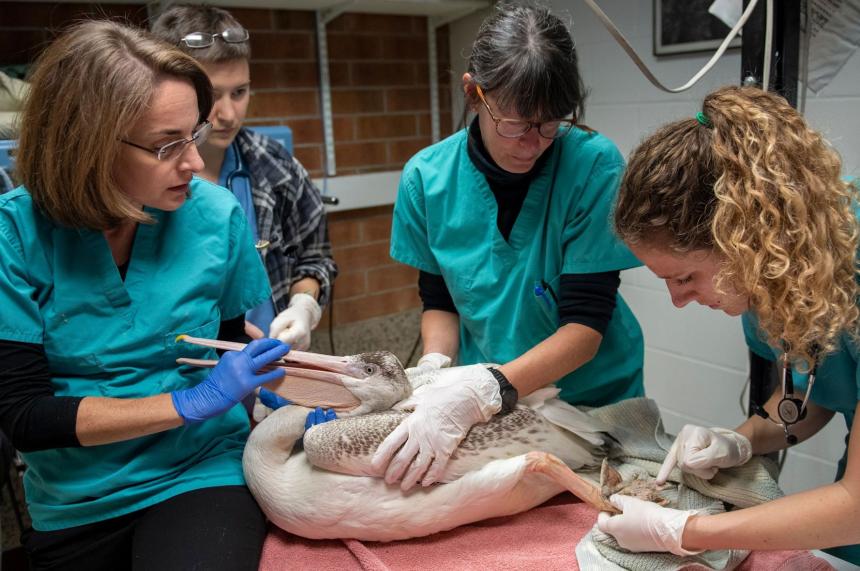In the News

October 25, 2023
I started veterinary school with the goal of working with stingrays, dolphins, and fish. Now, four years later, I can say I have worked at some of the top aquariums and other aquatic facilities in the country and connected with colleagues who are leading this field.

Video
October 23, 2023
In this eCornell webinar, Dr. Steve Osofsky, Dr. Krysten Schuler, and Dr. Jennifer Bloodgood of the Cornell Wildlife Health Center at the Cornell College of Veterinary Medicine share their experiences from the field and the lab to illustrate how the health of wildlife and our own health are inextricably linked.

October 11, 2023
We strap on our snorkel gear and jump into the blue. It only takes a few butterfly kicks to reach a citadel bustling with life. Within seconds, we are greeted by branching, massive, and laminar structures formed by hundreds of genetically identical individuals....

News
August 18, 2023
While she’s now nearing the completion of a two-year Veterinary Fellowship at the National Aquarium, Sarah Balik ‘15, DVM ‘19, clearly recalls experiences she had as a Cornell veterinary student that set her on her current path.

News
June 29, 2023
Cornell alumna Tatiana Weisbrod, DVM ‘17, once thought medical school was in her future, until she came across the Cornell AQUAVET® program, which changed the trajectory of her career.

May 01, 2023
Kristina Ceres' extensive research, from cattle with tuberculosis to the critically endangered great hammerhead shark, led the Wildlife Disease Association to select Ceres for a Graduate Student Scholarship Award, which recognizes outstanding academic accomplishment and future potential in wildlife research.

January 18, 2023
From Ithaca to the plains of southern Africa, the Cornell Wildlife Health Center is working to heal the natural world. Launched in 2020, the center was formed to unite Cornell’s leading wildlife health professionals under a common mission: to repair the fractured relationship between people and nature.

January 16, 2023
The Cornell Wildlife Health Center has launched a new Student Support Fund for off-campus apprenticeships with free-ranging or captive wildlife, on-campus wildlife research, and student travel to present at professional conferences on wildlife health and conservation.

January 10, 2023
Led by Cornell's Dr. Michael Stanhope, a team of scientists has sequenced genomes of the great hammerhead shark and shortfin mako shark, both endangered species.

November 16, 2022
Cornell hosted the Great Lakes Aquaculture Days 2022 Fish Health Workshop. New York state fish farmers, graduate students, and researchers from Cornell and other universities gathered to join for a day of hands-on learning and shared expertise in fish health.
